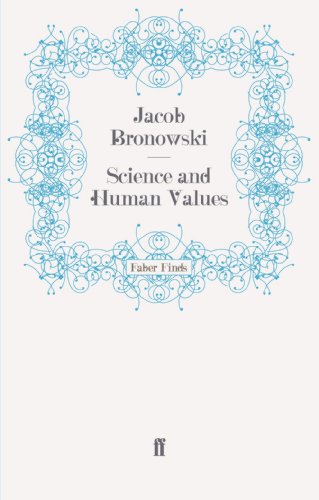Using Nagasaki as a Place for Diplomacy
The gravest indictment that can be made of our generalized culture is, in fact, that it erodes our sense of the context in which judgments must be made. Let me end with a practical example. When I returned from the physical shock of Nagasaki, which I have described in the first page of this book, I tried to persuade my colleagues in governments and in the United Nations that Nagasaki should be preserved ext actly as it was then. I wanted all future conferences on disarmament, and on other issues which weigh the fates o nations, to be held in that ashy, clinical sea of rubble. I still think as I did then, that only in this forbidding context could statesmen make realistic judgments of the problems which they handle on our behalf. Alas, my official colleagues thought nothing of my scheme; on the contrary, they pointed out to me that delegates would be uncomfortable in Nagasaki.
Notes:
J. Bronowski suggests the idea, but it is shot down because it would leave the delegates uncomfortable.
Folksonomies: war peace diplomacy
Taxonomies:
/travel/tourist destinations/japan (0.356851)
/society/unrest and war (0.270598)
/business and industrial/energy/nuclear power/nuclear accident (0.251656)
Keywords:
Diplomacy J. Bronowski (0.978559 (neutral:0.000000)), Nagasaki (0.866047 (negative:-0.310361)), gravest indictment (0.797175 (neutral:0.000000)), generalized culture (0.782450 (neutral:0.000000)), realistic judgments (0.776335 (negative:-0.484370)), practical example (0.772606 (positive:0.732844)), official colleagues (0.770695 (negative:-0.468197)), physical shock (0.760730 (negative:-0.400128)), future conferences (0.739361 (negative:-0.547195)), clinical sea (0.736242 (negative:-0.407549)), United Nations (0.731834 (negative:-0.216048)), delegates (0.666166 (negative:-0.441225)), context (0.618300 (negative:-0.474696)), rubble (0.572843 (negative:-0.407549)), disarmament (0.569432 (negative:-0.547195)), contrary (0.567601 (negative:-0.424449)), fates (0.566818 (negative:-0.331334)), statesmen (0.565511 (negative:-0.484370)), idea (0.559758 (neutral:0.000000)), sense (0.554075 (negative:-0.465023)), governments (0.553753 (negative:-0.216048)), Place (0.552227 (neutral:0.000000)), behalf (0.551070 (negative:-0.484370)), scheme (0.549549 (negative:-0.468197)), fact (0.547968 (neutral:0.000000)), page (0.545515 (negative:-0.253651)), book (0.545439 (negative:-0.253651))
Entities:
Nagasaki:City (0.865663 (negative:-0.310361)), J. Bronowski:Person (0.373800 (positive:0.732844)), United Nations:Country (0.371794 (negative:-0.273691)), official:JobTitle (0.177814 (negative:-0.468197))
Concepts:
United Nations (0.957142): website | dbpedia | freebase | opencyc | yago
Thought (0.730301): dbpedia | freebase | opencyc
Mind (0.498230): dbpedia | freebase | opencyc
Disarmament (0.479211): dbpedia | freebase
Jury (0.471704): dbpedia | freebase | opencyc
Diplomacy (0.469008): dbpedia | freebase | opencyc
World government (0.431321): dbpedia | freebase | yago
Idea (0.430254): dbpedia | freebase | opencyc





